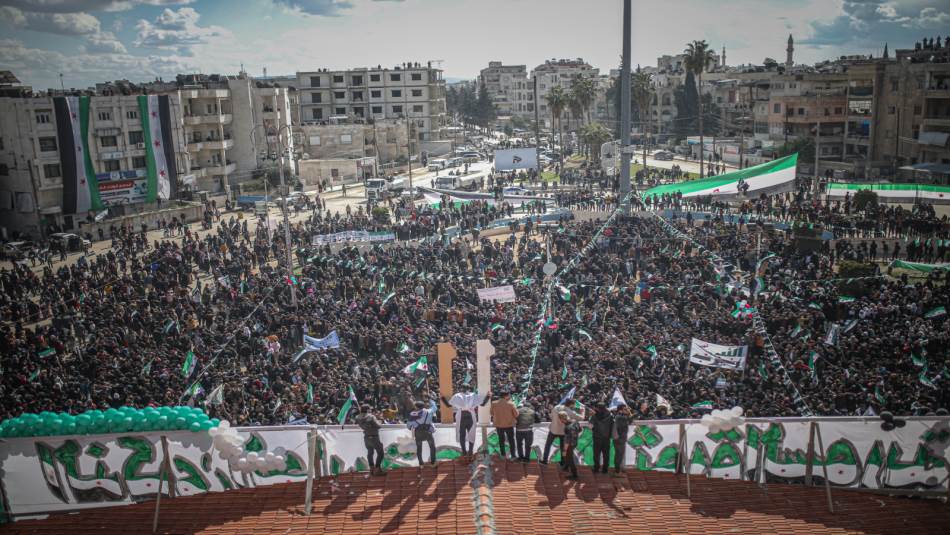The opening of the Syrian regime’s center for “settlement” in the Idleb countryside raises indicators that can be linked in one way or another to the Turkish rapprochement with the Syrian regime and Ankara’s call to achieve “reconciliation” between the regime and the opposition. The unprecedented step in Idleb reinforces popular concerns– especially since the regime had pre-conditioned the normalization of relations with Turkey according to press leaks– to hand over the administration of Idleb, the Bab al-Hawa crossing and the Kasab border crossing.
On Monday, the regime announced the opening of the first center for settling the situation of wanted people from Idleb and its countryside in the city of Khan Sheikhoun, near the lines of contact with the opposition.
According to a source from the Syrian regime, the opening of the center in Idleb is not without political signals to Ankara, after the latter announced its desire to open a new page with Damascus.
Read Also: In Presence of Julani: Graduation of First Batch from Military College in Idleb
The source added to al-Modon that the center supports the path of rapprochement with Ankara, which is a step on the way. It added that “subsequent steps will be announced soon in the same context,” without elaborating further. On the other hand, the opening of the settlement center is not new on the part of the regime, as the regime has opened similar centers in the areas it has regained control of in Daraa, Deir ez-Zor, Raqqa, Aleppo and others.
In other news, there were reports of negotiations between Turkey and Russia with the aim of opening the Saraqeb crossing east of Idleb, which connects the areas controlled by opposition factions and the regime, and the Kasab crossing, which connects Hatay governorate to Latakia governorate. This news comes without official confirmation.
In this context, Dr. Ahmed al-Qirbi, a researcher at the Center for Syrian Dialogue, pointed out that the opening of the crossings is one of the urgent Russian demands. Moscow has focused since 2018 on the need to open international crossings and roads passing through Idleb.
After apparently convincing Ankara of the need to rapprochement with its ally the Syrian regime, Russia now wants to activate economic normalization between Turkey and the regime, first to alleviate the economic crisis that the regime is experiencing, as well as to help advance political normalization.
According to Qirbi, the danger lies in the news of the opening of the Kasab crossing to trade traffic. He explained that “we are talking about an economic crossing linking Turkey with the Syrian regime without passing through opposition-held areas.” However, the researcher rules out opening the Kasab crossing currently, as he explains: “Turkey avoids opening a crossing that may flood its territory with narcotic pills, as in Jordan, although Jordan’s position was not as sharp on the regime as the Turkish position previously. Most importantly, there are no economic gains today that Turkey looks forward to from its commercial dealings with the Syrian regime.” On the other hand, the opening of the
Kasab crossing serves Turkey’s move towards returning Syrian refugees or reducing their numbers on its territory. Qirbi does not agree with that, he pointed out that despite the existence of crossings between Lebanon and regime-controlled areas, Syrian refugees are reluctant to return, despite the government’s policy of pressure on them.
Meanwhile, the website Intelligence Online revealed a meeting between the head of intelligence of the Syrian regime, Ali Mamlouk, and his Turkish counterpart Hakan Fidan, at the initiative of Russia. It added that Russia “sponsored a new meeting between Mamlouk and Fidan, in order to play the role of mediator between Turkey and the Syrian regime,” and pointed out that “the results of the meeting were not satisfactory, but it allowed the two sides to present their respective demands and conditions.”
This article was translated and edited by The Syrian Observer. The Syrian Observer has not verified the content of this story. Responsibility for the information and views set out in this article lies entirely with the author.


